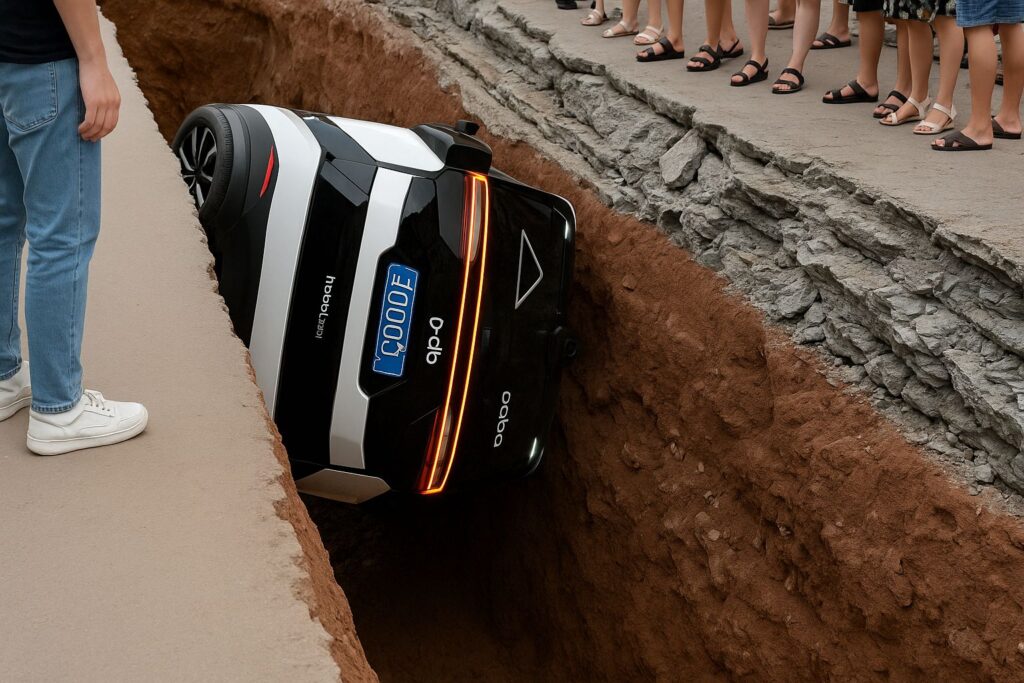On August 6, 2025, a spectacular robotaxi accident occurred in Chongqing. A self-driving vehicle from Baidu’s Apollo robotaxi service crashed into a secured construction site pit. The sole passenger was unharmed. Local residents used a ladder to get her out of the car. Videos showing the car at the bottom of the pit are circulating on social media. Despite clear barriers, the robot taxi drove directly into the danger zone. The cause of this malfunction is still unknown. (gulfnews: 11.08.25).
Focus on Baidu’s robot taxi service
Apollo Go is considered one of the largest robot taxi services in China. The service transports passengers in major cities such as Wuhan, Beijing, and Chongqing. In addition, Baidu is pursuing ambitious expansion plans through partnerships with Uber and Lyft. It also plans to enter the German market. The incident in Chongqing is putting considerable pressure on the company.

The topic of autonomous vehicle safety has been the subject of debate for months. Pony.ai also made headlines this year when one of its vehicles caught fire in Beijing. The incident occurred during maintenance work and without passengers, but it sparked widespread debate.
Fast technology, slow regulation
The market for autonomous driving in China is growing rapidly. Companies are testing their systems in clearly defined urban areas and are already transporting paying customers. The legal framework can hardly keep up with this dynamic development. Experts see this as a risk, as unclear responsibilities and a lack of standards compromise safety.
The accident shows that even the most modern systems, such as a robot taxi, can fail in complex situations. Faulty sensors, outdated map data, or confusing construction sites are among the possible causes.
Baidu’s silence fuels speculation
As of August 8, Baidu had not issued a statement. It remains unclear why the navigation system failed. Industry observers expect an internal investigation and technical adjustments.
Chinese forums are speculating about possible defects or inadequate data updates. These discussions illustrate how closely public acceptance is linked to trust in robotaxi technology.
The future of autonomous driving under observation
The Chinese government continues to support the industry through subsidy programs. At the same time, pressure is mounting to impose stricter safety requirements. Any further mishaps could lead to significantly tougher regulations.
There is a lot at stake for Baidu. User confidence is crucial to its success at home and abroad. Another accident of this kind could seriously hamper its planned expansion, especially in Europe. In markets such as Germany, the acceptance of a robot taxi service depends directly on a flawless safety record.
